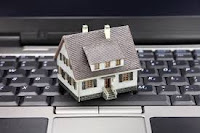What security objects in the connected home?
going inside their "Connected Home" created for the event that could take the measure of the phenomenon: the bulb, with locks through thermostats, everything will be connected."It is necessary that manufacturers develop equipment focusing on the identity of the user and create a protocol simple and uniform security across devices, applications, and networks. However, how to make sure that these devices are secure enough in view of their numbers and diversity and the exponential growth of multiplatform applications? "
Challenges should not be neglected
Biometric technologies are gradually moving into our daily lives, but it is only recently that they have entered into our homes. Beyond the many potential benefits for the connected home make life easier (practicality, process automation, cost optimization ...), it raises many questions, particularly with regard to confidentiality and data security.
"With new entry points into our homes, hackers can easily interfere in our daily lives, know our habits and our data hack"
Connected devices already on sale offering services on top of the technology, but whose security is often sacrificed to functionality: most of them do not have, for example, response mechanisms any hacking their equipment.
With these new entry points into our homes, hackers can easily interfere in our daily lives, know our habits and hack our data. We too often hear about cyber attacks, theft of confidential data not wonder, rightly, on the threats to the devices registering our daily lives, our habits, our preferences, our intimacy.
It is therefore necessary that manufacturers develop equipment focusing on the identity of the user and create a protocol simple and uniform security across devices, applications, and networks. Thus, the Smart Thermostat will be able to order your washing machine when to start a program from another brand, via a Wi-Fi network which we know all too well the vulnerability. While these devices do not represent confidential data but surveillance cameras garage door, baby-phones, ... many sensible objects and reassure us that hackers could use against us.
Biometrics, a winning option
Biometrics is the identification of a person by a body part (hand, eye, finger, face) to access a service; in other words, it's a great way to authenticate and connect to all types of devices.
"It is urgent that manufacturers are committed to work jointly with professional digital identity security"
In the smart home of the future, biometrics and by extension all technologies that require the user's identity service control will be used. The mobile phone will be the focus of the connected home. Since the latter, users can control all aspects of their home and their appliances through biometric authentication. The management of the identification and authentication will be the key to control. It is thus now possible to initiate some remote objects: heat water, check the temperature of an oven from our car, everything is possible! Increasingly diversified, the IoT market must ensure standardize its offers if he will not switch to the complexity. The industry needs to create a simplified and secure access to allow different objects connected competing brands communicate.
We can easily imagine that in the future everything that requires a connection with identification or authentication may be controlled by biometrics: thermostats, smart meters, switches ... In the future, we can make our homes as connected as we wish !
The Internet of Things offers many advantages but raises many concerns both in terms of connection and access. It is urgent that industrial endeavor to work together with professionals from the security of digital identities for secure access to optimally protect highly confidential data.
